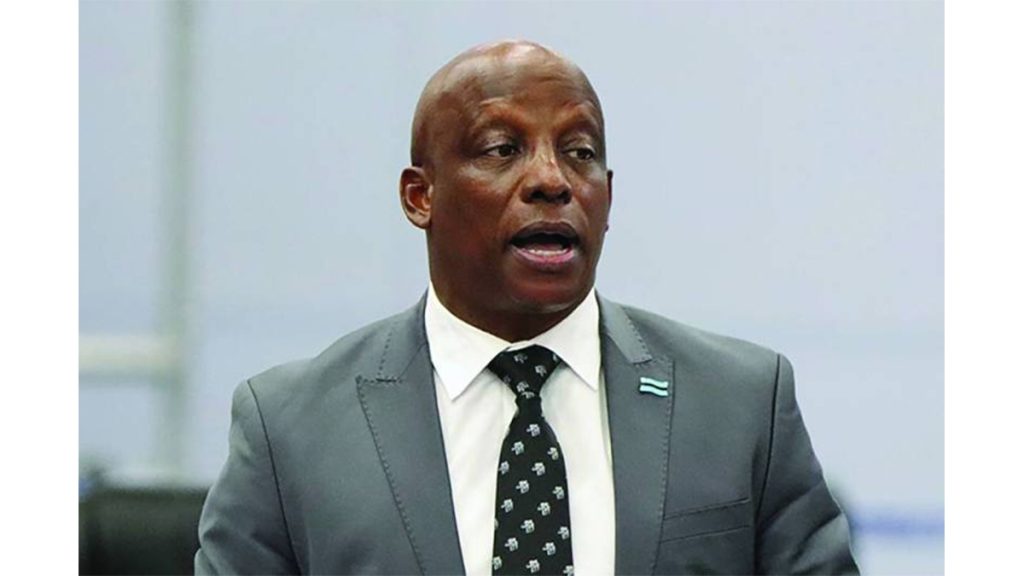As I was reading correspondence dated 30th August 2024 from the All Party Conference (APC) to the Chief Justice and the Chairman of the Judicial Service Commission (IEC) headlined ‘Re: Recommendation for Appointment of IEC Commissioners’, I was reminded of the contentious issue of who appoints Judges between the President and the JSC.
The case of Omphemetse Motumise & Law Society of Botswana vs Ian Khama comes to mind, where the Court of Appeal settled the matter, ruling that the President is obliged to act according to the recommendations of the JSC in appointing Judges. In short, the President does not have discretion to ignore or disregard such recommendation.
Almost all institutions that support our democracy by performing oversight functions report to the President as the appointing authority. None of their heads save for Rre Tymon Katlholo can muster the courage and conviction to stand up to him. Some like the DIS under Peter Magosi have openly become rogue and beyond redemption. The immediate past Attorney General, Advocate Abraham Keetshabe looked the other way when the DIS ran roughshod over the DCEC. Parliament has remained under the firm grip of the President.
The JSC happens to be populated by individuals directly appointed by the President and therefore, beholden to him/her as do other heads of other institutions. Needless to mention, the JSC has been embroiled in controversial issues like the case of Judge Ketlogetswe against the Chief Justice together with the Law Society of Botswana. The BDP representative at the APC is none other than the Minister for State President, Kabo Morwaeng. He should have submitted the 10 names to the JSC as recommended by APC as its chairman, regardless of whether he had participated in the meeting that took the resolution to recommend such names or not.
There are two possibilities why, seemingly, the JSC may have been misled or kept in the dark about the resolution of the APC. Firstly, Morwaeng may have deliberately, not informed the JSC by virtue of his position as the chairman of APC that the latter had duly submitted 10 names for consideration to be appointed and therefore an obligation on the part of JSC to trigger the appropriate Constitutional provision to appoint IEC Commissioners. This notwithstanding, the JSC would still be obliged to ensure APC was deadlocked to the extent that no names were agreed upon.
What cannot be disputed though, is that the letter from APC to the JSC dated 30 August 2024 was received by the BDP on 6 September 2024. The party date stamp proves it. The same letter was received by the Secretary to the Minister for State President on the same date while it was received by the Chief Registrar of the High Court on 5 September 2024. Both are date stamped respectively. The Secretary of the JSC announced the appointment of the five IEC Commissioners on 10 September 2024-five days after receiving the APC letter. This suggests in some way the names were long prepared before the conclusion of APC meeting. This letter says ‘There being no list of persons recommended by All Party Conference, the Judicial Service Commission…has appointed the under listed members of the Independent Commission with effect from 6th September 2024’. This appointment is made one day after the JSC would have received the APC letter containing the recommended list from which to appoint. Things don’t add up here.
It is clear that the JSC received APC letter with a recommended list but chose to ignore it by proceeding to appoint its own preferred five IEC Commissioners. The position of the JSC that such appointments were made because no list was received from APC is manifestly false worth dismissing with the contempt it deserves.
A few questions arise. Why did the JSC, notwithstanding the provisions of Section 65A (2) fail to appoint some of the required five from the list provided by APC given that some fully met the requirements of the positions in terms of law, economics and Information Technology? Does the BDP dissension reasonably and objectively speaking, amount to the APC’s failure to agree on the appointment from its list? Failure by members of the APC would in my view, obtain in the event it failed to send a list of appointable persons to the JSC in which case the latter will have no choice but to trigger Section 65A (2). On the basis that APC sent a list to JSC from which to appoint, there can be no compelling reason(s) why such appointments were not made from the APC list. Is it not reasonable to suggest the BDP at APC has diminished and rendered the voice of the majority parties at APC irrelevant thereby creating the impression, rightly or wrongly, that it influenced in some way the appointments of the five IEC Commissioners? As if disregarding the APC list was not enough, the JSC appointed three persons who were appointed to the Delimitation Commission back in May 2022. This looks untidy.
In the circumstances, the appointment of the Commissioners is unlawful and unconstitutional. The JSC succumbed to pressure from the BDP representation or lack thereof at APC. The two have the onerous task of truthfully explaining themselves on the matter. I am prepared to be persuaded otherwise as always. Judge for Yourself!
